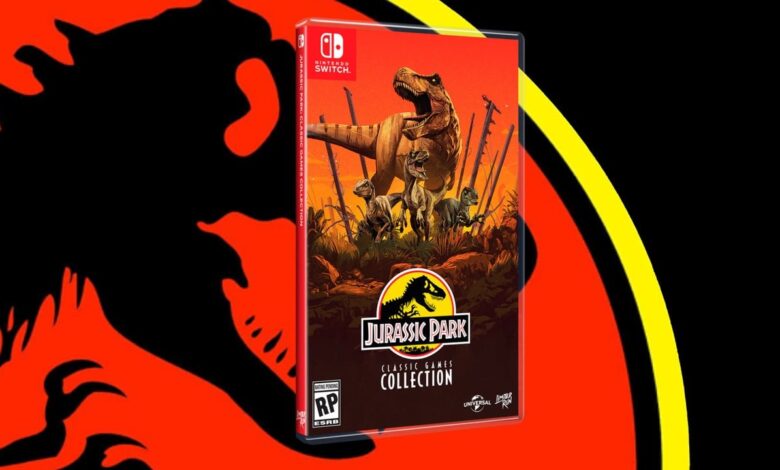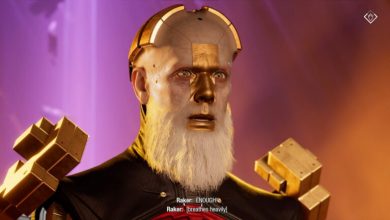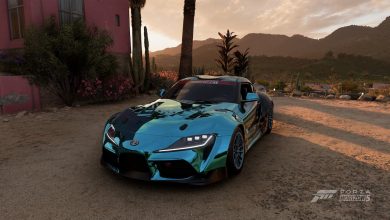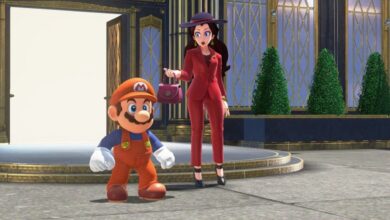‘Impossible’ Port Master Randy Linden Talks Jurassic Park, BOTW, And His Favourite Ports

You’re talking of porting itself as a creative process. Yet translation in gaming is [often viewed as] just a tool for a different creator. Philosophically, I find that fascinating. What do you feel is the job of a port in relation to someone else’s work?
That’s a good question too [laughter]. I think that the job of a port is to faithfully reproduce the intent as much as possible of the original experience. Sometimes that might mean, say on newer systems that you can run on a different frame rate, when that improves the game, then I think that is a useful feature.
But I think that the preservation of games in particular is a thing that is dangerously on the edge of being almost non-existent. It’s important for ports and old retro games to be [preserved].
You’re currently working with Limited Run on a Jurassic Park retro-collection re-release for modern systems. But what is your involvement with gaming preservation, in general?
I work on the Carbon Engine team, which is a collection of emulators that we combine with older retro games, and then we produce physical versions of those games [to preserve them].
So for example, the Jurassic Park collection is a whole series of Jurassic Park games across a wide variety of older systems, but it’s playable now on Switch, on PlayStation and Xbox.
How does that literally work? Do you have to work with assets from the original creators?
That’s exactly what we do. We reach out to the current [intellectual property] holders, [then] we do all the licensing and all the legal arrangements to make sure it’s all taken care of, then we license and publish the game.
How hard is that?
A lot of work. I just have to work on the programming. [laughter]
Does [the legal process] dictate the projects you get to work on?
Yes, it does. Because sometimes we will want to work on a project…and we’ll reach out to the rights holders, and for whatever reason, the rights holders aren’t interested in re-releasing a title at that time.
And partially, I think it’s because, these companies, especially very large, well-known companies with a lot of high-profile IP, are seeing a resurgence in retro games and retro-style games, and they are ready to explore it, but they’re not quite ready to take that step yet.
With Jurassic Park, for instance, very technically speaking, how do you receive the original code, and what do you do with it?
What we literally do is…we’ve got the Carbon Engine which is a set of emulators themselves, we’ve got the individual ROMs — and for a lot of the ROMs we have to do modifications to the ROMs because the original developers or license holders no longer exist, and they have logos or copyright messages that we’ll have to go in and patch by hand — and we combine all that with the Carbon engine, and that’s how we sort of end up with the final product.
The subset of people who are familiar with these systems that are 10, 20, 30 years old are really small.
Are you ever in communication with the original coders?
Sometimes we are, as a matter of fact. I think I can tell you that we are in contact with some of the original coders…sometimes they reach out to us, often times we reach out to them…
For example, the coder of the game Worms: Armageddon, they’re a company that no longer exists. We’ve published it from many platforms, but one of them we didn’t publish yet is the Super NES [version], but we’ve recently been able to make that work.
What was that like?
It’s crazy fun! [laughter] It’s a lot of work, but as I said, programmers like a challenge.

What’s it like to code in that specific restraint of the Super NES again?
It’s a challenge. It takes an awful lot of history and knowledge, and a very specific skill set to be able to program especially on the older system, like the 8-bit Nintendo, or the Super Nintendo, Sega Genesis, Game Boy, Game Gear. That knowledge is something that typically isn’t really passed down from generation to generation, because by the time a generation of consoles expires and is replaced, everything has changed. The hardware has changed, the software has changed…so you really have to find someone who is knowledgeable about all of these older systems and their technology in order to be able to put together packages like the ones that we do.
How many people could there possibly be left that have (that) intimate knowledge?
There are a few. For example, Kevin Armstrong, who is one of (Limited Run’s) programmers, and he’s great with Nintendo, 8-bit, Game Boy, Game Boy Color.
Dimitris Giannakis, you might know him as Modern Vintage Gamer, he’s great with a wide variety of systems. I’m good with Amiga, Commodore systems, Nintendo 8-bit and 16-bit…there’s a wide range of people that work on the titles, but it’s limited.
In the grand scheme of things, when you think about the industry, as a whole, video games are a smaller industry. The subset of people who are familiar with these systems that are 10, 20, 30 years old are really small.
I’ve been playing games, especially in the last few years, that I would describe as ‘obsessed with older source material’. Do you believe that constraints produce creativity?
Yes! Absolutely. One of the things that I think is driving the resurgence of older games is the playability, the fun factor, the uniqueness of the games. And a lot of that was driven by constraints.
One well-known story is the design of Mario was driven specifically by the limitations of the graphics at the time. They wanted him to look the way that he does…
His mustache.
Precisely!

What are you working on beyond Jurassic Park?
I can tell you that I’m working on Jurassic Park, and other games that use the Carbon engine, but I can’t name either of them. [laughter] Both of them are from separate, very well-known companies with excellent IP.
My suspicion is that we are headed towards a point that the systems themselves become less relevant.
Do you have input on the projects you pursue?
I do…I’m one of those programmers that are driven by the technical challenge. Those are the games and the projects that excite me.
We’ve been talking about retro games when we talk about these constraints. At the top of the interview though, I mentioned a modern example [of porting limitations]. I would describe the vast majority of dialogue around modern-day constraints and porting to be net-negative. For example, Nintendo creates hardware that isn’t always intended to push technical limitations (but rather) foster physical experiences, and [that is frustrating] to port to and from.
Do you have any opinions on that push and pull, and its effect on the ability to port modern-day games?
My suspicion is that we are headed towards a point that the systems themselves become less relevant. That there is a common ground, sort of like we have with DVDs or Blu-rays, that you can buy a player from a manufacturer and it doesn’t matter where the manufacturer is from. I hope that’s where we’re going. Because while I think there was a point in history… it was really the infancy of the industry that was pushing the industry. “This particular hardware can do things that some other hardware couldn’t.”
Now we’re reaching the point where all the systems are generally powerful enough that they can in many cases do the same thing on each of the systems. So why not approach it from a different perspective and [create] an industry standard? I’m not convinced that cloud gaming is necessarily where things should be headed, but I do think that having a commonality across the systems would make it more possible to have more people enjoy things.
My perception from covering Nintendo for so long is that they are not interested in technology, as much as interface.
And experience! I would say that Nintendo really nails experience. Which isn’t to say that Microsoft or Sony or any other company doesn’t, per se. But I do know when I pick up a Nintendo game, that it will truly be polished to perfection.
One of the last games that I played was Breath of the Wild. I loved it. I played it for 120 hours. But I’m not a gamer! I’m a programmer! [laughter]
I don’t think anyone believes you.
It’s true! Many people don’t believe me! [laughter] But I don’t play many games. What I enjoy more than the games themselves is the technical achievements. But what I know about Nintendo is that it’s not about style versus substance, Nintendo has both style and substance. They’ve managed to really get that mix.

Well, specifically Breath of the Wild is a technical achievement as much as it is anything. It’s also technically a port from the Wii U.
That’s exactly it. It’s a technical achievement, particularly on that platform. And the game is incredibly fun. I liken it to an onion, where you peel back one layer, and there’s another layer, and another layer, and another layer, and you realize that there’s more than the average player might ever perceive.
You worked on Kinect, correct?
I did. I worked on Kinect.
So speaking to that experience, do you envision a future where you might ever be called upon to port Wii or Kinnect games?
Um….that’s possible? That’s possible!
Because that [motion-based] interface currently seems to be relatively exclusive to that era, at this point, and I wonder what will happen [to those games] in the future.
Nintendo really nails experience.
Although the Switch has a gyro, and an accelerometer, and that is a perfect example of how a game like Breath of the Wild can use that technology [for] puzzles that…were infuriating to me at first, until I realized that I could use the separate controller, and that was so much easier than flipping my Switch around.
I think that VR and augmented reality are unique and great technologies, and when they are more accessible, like putting on a pair of simple glasses, I think…when we reach that point, I do see things like Kinnect-style games becoming more important.
One final question: What are your favorite ports?
What are my favorite ports…
It’s kind of a strange question, but I feel like if anyone has a strong opinion on this…
The Secret of Monkey Island: Special Edition. I love the Lucasarts games. Another that I really like is the Atari 50 collection, which is not so much a single port but a collection of 50 games. I’m old enough that some of my favorite games were brand new at the time, like Centipede, Xevious, Tempest, Zaxxon…those I think are my absolute favorites.

This interview has been lightly edited for clarity.
Our thanks to Randy for talking with us. The Jurassic Park Classic Games Collection is up now for pre-order on Limited Run’s website.




